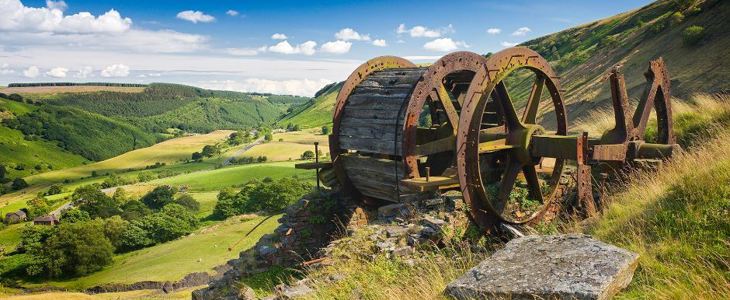Blaenau Gwent is a place of heritage and dramatic change, with a sense of its past but its eyes firmly on the future.
Covering an area of approximately 10,900 hectares and with a population of 68,400, Blaenau Gwent is divided into 14 political wards, represented by 33 elected members.
Blaenau Gwent is defined physically by the beautifully desolate mountain tops which divide and watch over its vibrant, bustling valleys. The three main rivers, the Sirhowy, the Ebbw and the Tillery, slip south through towns and villages which, to the untutored eye, often seem to merge together into one. Make no mistake, however - each community proudly maintains its own character and traditions.
Although the towns give the county borough a busy, urban feel, Blaenau Gwent is actually a largely rural area. Forty five per cent of the land area is undeveloped, and the greater part of this is defined as open countryside. Wherever you are, beautiful countryside is never far away, and as often as not it will be providing the views from where you’re standing.
Blaenau Gwent Council strives to provide its residents with high quality facilities offering opportunities for each person to improve their quality of life.
Excellent leisure facilities are available throughout the county borough, offering a huge range of activities: from outdoor pursuits and water sports at Parc Bryn Bach above Tredegar, to the indoor bowls centre in Abertillery; from the Market Hall Cinema in Brynmawr – one of the few still operated by a local authority – to the Llanhilleth Institute, currently undergoing a major refurbishment.
A hi-tech network of Learning Action Centres, library facilities and ‘Digilabs’ provide educational and IT opportunities to people of all ages.
Blaenau Gwent has experienced enormous regeneration investment in recent years, with much more to come. Major projects like the re-opening of the Ebbw Valley railway and the re-development of the former Corus steelworks site in Ebbw Vale will transform the face of the borough.
Blaenau Gwent is swiftly changing from the powerhouse of heavy industry as which it was justly-famous, into a modern, green and economically dynamic region, linked by rail and road to the commercial opportunities of the future, and by heritage and community to its roots.

